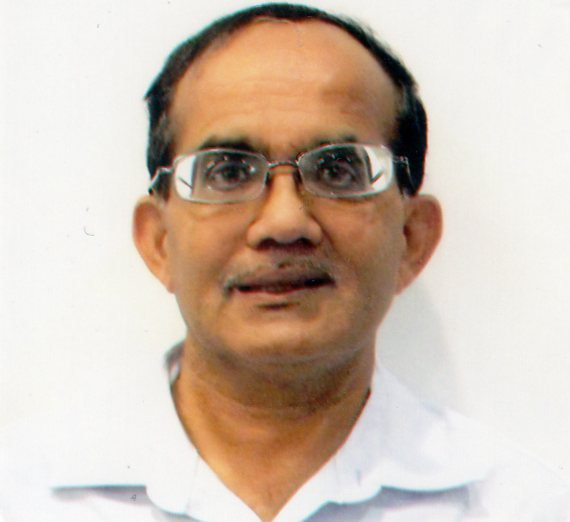- Ayurveda and the Mind
- >
- Healthy, Mind, Sleep, Yoga - Dr. Nagabhushan Moolky
Healthy, Mind, Sleep, Yoga - Dr. Nagabhushan Moolky
Nagabhushan Moolky, PhD, CNS, Illinois, USA - a certified nutrition specialist, Scientist & Yoga researcher. He worked as a scientist for the last 35 years. He was a Scientific Officer at Tata Memorial Center Cancer Institute, Bombay, India where he completed his Ph.D. He worked as a scientist in several top notch Universities in USA. He was the first one to show (1984) that some of the spices (its principles) - Turmeric (Curcumin), Ginger (Gingerol, Shaogol and zingerone), Catechu (Catechin) and betel leaf (Hydroxychavicol) prevents genetic damage resulting in cancer formation caused by environmental and dietary chemicals. He is the first one to show (1984) that Turmeric in diet prevents virus-induced spontaneous mammary tumors in mice. His research was recognized by more than 20 awards by national and international organization including Young Scientist Award (Gold Medal), 1988 from Indian Council for Medical Research (ICMR), New Delhi, India and New Investigator Award 1989, American College of Nutrition, USA. He has published his research findings in peer-reviewed national and international scientific journals and also presented more than 150 abstracts in national and international scientific meetings. In 2004, he was invited to present his work at the First International conference on childhood leukemia, London. The presentation was covered by all major news papers and news channels around the world including BBC, CNBC, CBS, ABC news.
Topic: Ayurvedic Approaches to a Healthy Mind, Role of Sleep & Yoga
Abstract: Ayurvedic Approaches to a Healthy Mind, Role of Sleep & Yoga. Dr. Nagabhushan Moolky, Ph.D., C.N.S. Usha Kolpe, MD** & Arnav Shandilya*. Senior Scientist, Health Coach, Expert Witness, Independent Consultant – Nutrition & Toxicology, Oakbrook, Illinois, USA., **VA Hines Hospital, Maywood, Illinois, USA, *Neuqua Valley High School, Naperville, Illinois, USA.
From the beginning of Bharat civilization around 12,000 years ago, the scientific and philosophical analysis of the human mind and behavior and their effect on human health, happiness and evolution were revealed. Ayurveda, the traditional medical system (5000 years old), originally written by Charaka and Sushruta around 400 BCE describes diseases and treatment methods and medicines. Ayurvedic practices also include mental health – diseases, prevention and treatment. Yoga (12,000 years old) is one of the systems that prevent mind from unnatural deviations. Such a mind creates/enhances the chance of diseases and unhappiness.
Some religious and cultural practices were incorporated in our daily life, and are not recognized as Yoga: Performing prayer, surya namaskar (sequence of 12 asanas with mantras of gratitude to sun, the life force) and uddanda namaskar during puja or when seeing Gurus (teachers), elders, and parents. In order to be happy, we should show gratitude. In previous generations of education, students were asked to do bhaski as punishment (now labeled as Superbrain yoga). It is now scientifically shown that performing bhaski maintains the balance between left and right hemispheres of the brain, and thus normalizes brain hyperactivity. Yoga nidra is also a well known yoga sequence that benefits both body and mind with much needed relaxation.
Another relaxation form is Shiva asana, commonly and incorrectly labeled shavasana. Shiva means dynamic, while shava means corpse/no life force. Yoga is a dynamic action to integrate body & mind. The Bhagavad gita mentions “Samatva yoga”. This asana integrates mind and body and makes unity of life force with minimal activity. The performer is still alive and conscious, but is not stimulated internally or externally. These preventive methods are straight forward, simple, not time consuming and can be performed by all ages. Finally, there are ayurvedic diets, plants, and shastriya formulations that are also recommended and beneficial for mental health.

